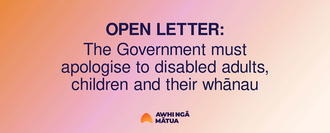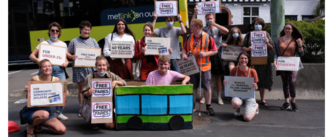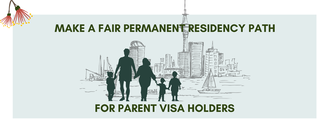-
Restore The Southerner TrainA restored Southerner train route offers affordable transport for 750,000 SI residents, bridging gaps where air is too costly for students/low-income, coaches inaccessible for disabled/elderly, and car travel unsafe/expensive. This boosts regional economic development and tourism. Recent rail investments, like Hillside Workshops, new ferries, and Inland Ports, confirm rail's viability in the South Island.6,398 of 7,000 SignaturesCreated by Patrick Rooney

-
Protect Our Youth – Ban Vape Shops in the Far North DistrictNgā Take 10 Hei Hainatia i Tēnei Petihana TOP 10 REASONS TO SIGN THIS PETITION 1. Kua piki haere te haurehu a ngā rangatahi—me tū ngātahi tātou te aukati i tēnei mate urutā. Youth Vaping Epidemic - vaping is spreading fast among rangatahi (young people), and it's becoming a serious health issue. Daily vaping among New Zealand teens has nearly doubled in one year, with 25.2% of 18–24 year-olds now vaping daily. Among Māori youth, this rate is even higher at 21.7% [6]. 2. He mōrearea tūturu ki te hauora. The health risks are real — vaping isn’t as safe as purported. Vaping is linked to respiratory conditions, nicotine addiction, and impaired adolescent brain development. Emerging evidence also suggests a potential connection to chronic obstructive pulmonary disease (COPD) and cardiovascular risks (New Zealand Doctor, 2005). [7] 3. Ko ngā kamupene haurehu e pūpuri ana a tātou mokopuna i te mate. Vape advertising is targeting our kids [7] — and our kids are becoming addicted. It looks nice. It tastes nice. It's addictive. It makes you feel good. Flavoured vapes, bright packaging, and social media marketing are deliberately designed to attract young users. Some schools in Northland have reported finding children as young as 11 using vapes [8]. 4. Ka nui te utu ka utaina ki te ohanga ā tōna wā roa. Vaping might look cheap now, but the long-term costs to our health system and communities are massive. Treating vaping-related health conditions will place a growing strain on our healthcare system and taxpayers. Meanwhile, profits flow largely to multinational tobacco corporations. 5. He pānga kino tō te haurehu ki te taiao. Disposable vapes are polluting our whenua, waterways, and oceans — and they’re piling up fast [9]. 6. E whakakāhore ana ētahi atu kawanatanga o te ao hei ārai ēnei taputapu haurehu, me pēnei hoki tātou o Aotearoa . Around the world, governments are stepping up to protect young people from vaping. The Cook Islands has demonstrated bold leadership by banning the sale of vapes and raising the smoking age to 21 [10]. We can take bold measures, too. 7. Ka puta mai ngā toa hoko haurehu ki kō, ki kō, ki ngā wāhi pātata ki ngā kura, ki ngā hapori, ki ngā kainga maha. Hanga tōmuri kē ngā ture o te rohe. Vape shops are popping up everywhere — and the rules aren’t keeping up. As of mid-2023, there were over 1,200 specialist vape retailers registered in New Zealand [11]. Many operate through loopholes such as 'stores within stores,' making regulation difficult and we are now seeing global franchises such as “Shosha” stores penetrate our community. 8. Horekau he ture ā-rohe hei mimiti i ēnei āhuatanga raru ki te hāpori, ki a tātou mokopuna me ngā paru e panaia ki a Papatuānuku. Without local rules, vape shops are popping up everywhere — and our communities, our kids and the environment are at risk : The Far North District Council is currently the only Northland council without a smokefree/vapefree policy for public spaces. This leaves places like playgrounds and beaches unprotected. 9. Ka whakapau taima ngā kaiako te aru haere i ngā take haurehu i roto i ngā kura . Kāhore e pai te haurehu ki te hauora, ki te ako hoki. Vaping in schools isn’t just a health issue — it’s a disruption to education and the school environment. Teachers report vaping as a major disruption, taking time and resources away from learning. 10. Mā te reo kotahi o te hau kainga o Kaikohe o Kaitaia e tīni i ngā āhuatanga tūkino o ngā toa haurehu. Local voices can lead to real change. Let’s make sure our community is heard and protect our rangatahi from vaping. Local voice matters. Our communities should determine the types of businesses allowed to operate here, not corporate interests profiting from addiction. Me tupu pakari a tātou tamariki. Tuhia tō ingoa ki te petihana, āwhinatia mātou ki te tū mō tō rātou anamata. Our kids deserve to grow up safe and strong. Sign the petition and help us stand up for their future. References [1] https://www.phcc.org.nz/briefing/smoking-and-vaping-among-14-15-year-olds-government-action-urgently-needed [2]https://www.nzdoctor.co.nz/article/undoctored/vaping-causes-incurable-lung-disease-groundbreaking-study-shows [4] https://www.1news.co.nz/2024/04/10/unacceptably-high-sales-to-underage-vape-buyers-revealed/ [5] https://www.rch.org.au/kidsinfo/fact_sheets/E-cigarettes_and_teens/ [6] https://www.health.govt.nz/publications/smoking-status-of-daily-vapers-new-zealand-health-survey-201718-to-202122 [7] https://nzmj.org.nz/media/pages/journal/vol-137-no-1589/exposure-to-digital-vape-marketing-among-young-people-in-aotearoa-new-zealand/dc9761c255-1706653375/6317.pdf [8] https://www.nzherald.co.nz/northern-advocate/news/vaping-in-schools-being-stubbed-out-with-homegrown-northland-lessons/GWARQTN6UFAFRMIFTCFQQZDSBU/ [9] https://www.greenpeace.org.uk/news/are-disposable-vapes-bad-for-the-environment/ [10] https://www.rnz.co.nz/international/pacific-news/517488/cook-islands-bans-vapes-smoking-age-raised-to-21-if-you-don-t-smoke-you-still-die-opposition-mp-says [11] https://www.health.govt.nz/system/files/2024-08/RIS-visibility-of-vape-products-and-proximity-of-Specialist-Vape-Retailers-Redacted.pdf Further reading J, Erhabor., Z Yao., Erfan Tasdighi, Emelia J Benjamin, Aruni Bhatnagar, Michael J Blaha. 2005. E-cigarette Use and Incident Cardiometabolic Conditions in the All of Us Research Program, Nicotine & Tobacco Research, https://doi.org/10.1093/ntr/ntaf067334 of 400 SignaturesCreated by Te Wananga o Te Rangi Aniwaniwa
-
Properly staff and resource our HospitalsAotearoa should be a place where people who are in need can access hospitals and get timely treatment, where staff are supported and properly resourced to give quality care. We have the opportunity to ensure that the most medically vulnerable people in our communities are properly supported through their journeys to improved health and wellbeing. New Zealand is facing a health crisis. People are suffering, and some are dying, because they can't access the treatment they need. Our hospitals need to be rebuilt, better resourced and better staffed. New Zealanders deserve a healthcare system that doesn't leave them waiting for months or years just to get the treatment they need; and medical professionals deserve to work in an environment that enables them to deliver the care their patients need and deserve. “We have over a thousand patients that are waiting for either a first specialist appointment or a follow-up appointment. I've never seen that number of patients waiting to be seen." — Dr. Claudia Hays, head of the Obstetrics and Gynaecology Department at Nelson Marlborough Health [1] “Certainly I have seen patients that I believe their disease has gone from curable to incurable during that waiting time." — Dr Suzanne Beuker, senior doctor and consultant for the Urology Department at Nelson Marlborough Health [1] “Someone put my life at risk by changing my diagnosis. This could’ve damn near killed me.” — Daniel Walker, Nelson patient whose nine-week wait likely increased the spread of his testicular cancer [2] The Government needs to build facilities that are fit for purpose for our aging and growing population. Despite the growing crisis, there is a lack of action. We need a bipartisan approach to healthcare that resolves these issues once and for all. The public needs transparency, information and engagement regarding investigations and reports on these issues; and in particular the independent investigation at Nelson Hospital. Sign this petition and together we can hold the government to account and make sure our hospitals are resourced enough to help our family and friends in need.415 of 500 SignaturesCreated by daniel walker
-
Where's the Work?The Where’s the Work? campaign highlights the growing urgency for increased local job availability and accessibility, both during and after studying. While there may be work out there, it is often unsuitable or out of reach for students managing demanding study schedules and financial pressures. Students need flexible, fairly paid employment that complements — not competes with — their education. These roles are crucial to sustaining themselves while pursuing their degrees and, critically, retaining & growing the tertiary-educated workforce. VUWSA believes that if Aotearoa is serious about retaining its talent and revitalizing its communities, then we must invest in our young people — not only with education, but with real pathways to employment. Where’s the Work? is a campaign grounded in the belief that when students succeed, we all benefit. The campaign also aims to champion the mutual value of stronger partnerships between local businesses and students. Students bring fresh ideas, innovation, and energy to the workforce. In turn, they gain practical skills, income, and a sense of belonging in the communities they live and study in. By fostering a reciprocal relationship between students and employers, we’re not just supporting individuals — we’re enriching our city’s social and economic fabric. This is a call for employers, policymakers, and universities to step up — to support tauira in tangible ways, to value their contribution, and to build a future where they don’t just survive here but thrive here.864 of 1,000 SignaturesCreated by Engagement Vice-President
-
Protect Waipiro Bay: Do not fast-track approve the proposed 200–250 Berth MarinaWhat are some of the impacts of the proposed development? Ultimately, this development must be stopped. A project of this scale—with serious cultural, ecological, and social implications—requires transparent, evidence-based decision-making that respects both the environment and the communities who call this place home. The proposed marina would cause irreversible damage: • To the Treaty partnership between the government, mana whenua and hapū • Destroying areas of cultural harvest significance • Eliminating native wildlife habitat, including that of high-risk species • Altering the ecological and visual landscape of Waipiro Bay • Privatising 9 hectares of public marine space • Extinguishing customary food-gathering areas Shockingly, the application lacks basic environmental assessments, including: • An Ecological Survey • A Hydrology Survey • A Cultural Impact Assessment • A robust Assessment of Environmental Effects (AEE) • Robust community input and engagement Waipiro Bay is not just water—it is our taonga, a source of identity, sustenance, and intergenerational connection. We cannot protect our culture, pataka kai, and wildlife without proper evidence and an inclusive process. This development must return to the proper consent pathway, so the voices of the Bay of Islands are heard. To our community: Let’s stand together to protect our waters, kai sources, wildlife, and future. Sign the petition to stop this harmful development and safeguard Waipiro Bay for generations to come. What is the proposal? A local family with a commercial arm has proposed to build a 250+ berth marina. This marina is intended to service a wide range of vessel sizes. The proposal claims that the marina will benefit the public by: • Reducing traffic at Te Uenga Boat Ramp • Providing potential key utilities (note – these are already available at the Opua marina); • Providing retail services. In summary, the proposal appears to provide mere convenience for a small portion of the community and does not provide a significant benefit at a regional or national level. What is required to approve Fast Track? Under the Fast-Track Approvals Act, the following considerations are made when determining whether to approve fast track of a consent application: • the project is an infrastructure or development project that would have significant regional or national benefits; and • referring the project to the fast-track approvals process – • would facilitate the project by enabling it to be processed in a timely and cost-effective manner; and • is unlikely to materially affect the efficient operation of the fast-track approvals process. In considering whether to refer the application to the fast-track approvals process, the relevant Minister must consider the following: • Whether the project would be inconsistent with a Treaty settlement or a joint management agreement; • whether it would be better dealt with under other legislation; • whether the project has significant adverse effects on the environment; • whether the project area includes land that is considered necessary for a Treaty settlement process. Because Waipiro Bay is more than just a piece of coastline—it’s part of who we are. Here’s why it matters: • Waipiro Bay is a taonga, home to rich marine life, cultural traditions, and a close-knit community. • The Eastern Bay of Islands have been kept free of large-scale commercial development to preserve its scenic beauty and natural value. Maintaining its natural integrity is the best long-term economic and ecological value to the public. • The proposed marina would privatise public water, destroy customary food-gathering areas, and alter the bay forever. • The application bypasses due process, silencing local voices, ignoring Māori rights, and skipping essential environmental protections. • We have the evidence: demand for marina berths is low, and this project offers no proven regional or national benefit. • The sharp rise in boat density will further strain the already over-saturated Eastern Bay of Islands. • The economic benefits will go solely to the developers, with no meaningful revenue such as rates going to Council or the public. Instead, the marina will increase infrastructure costs, adding pressure to already limited Council resources. References https://environment.govt.nz/acts-and-regulations/acts/fast-track-approvals/ https://www.dockland5.co.nz/ https://www.sail-world.com/news/268425/Okara-Marina-Berths-now-available https://data-nrcgis.opendata.arcgis.com/datasets/aquaculture-exclusion-areas-5 https://www.whangareimarina.com/okara-marina https://www.boaties.co.nz/nearest/marinas https://www.boaties.co.nz/marinas/northland https://www.nrc.govt.nz/maritime/moorings/moorings-for-sale-or-rent-listings/ https://www.legislation.govt.nz/act/public/2011/0003/latest/DLM3597250.html https://www.legislation.govt.nz/act/public/2024/0056/latest/LMS943260.html https://www.epa.govt.nz/fast-track-consenting/fast-track-approvals-act-2024/ https://www.nrc.govt.nz/resource-library-summary/plans-and-policies/moorings-and-marinas-strategy/moorings-and-marinas-strategy/ https://www.legislation.govt.nz/act/public/1991/0069/latest/DLM230265.html https://www.bayofislandsmarina.co.nz/superyacht-mooring https://www.xn--morilandcourt-wqb.govt.nz/en MAC-01-01-076: Ngāti Kuta and Patukeha ki Te Rawhiti/ CIV-2017-485-321.14,866 of 15,000 SignaturesCreated by BOI Ipipiri Community
-
Student Sports For All StudentsWe believe every NZ student deserves fair and equal rights to compete in student sports events, including home-schooled students. School Sports NZ excludes home-schooled students from competing in many local, regional, and national events. Diverse and inclusive sport is a core principle within Sport NZ's strategy and we believe its funding allocations should uphold this. In our opinion, student sports should include every NZ student, no matter their legal education path. 📣 Please Sign and Share this Petition! Use social media, community groups, and newsletters to spread the word. Thank you! About Homeschooling Home-schooled students in Aotearoa New Zealand are domestic students regulated by Section 38 of the Education and Training Act 2020 and overseen by the Ministry of Education. Home-schooling families are eligible for a Homeschooling Allowance of between $398–$796 per student, per year from the Ministry of Education. About HESSA The Home Educators Student Sports Association (HESSA) is the national body representing the rights of almost 11,000 home-schooled domestic students to compete in sports across Aotearoa New Zealand. HESSA has a strategic focus on ending the exclusion of home-schooled domestic students from competing in secondary-age student sports in Aotearoa, New Zealand. Other Actions You May Like to Take 🏉 Ask Your Sports Club to Support the Cause Encourage clubs to publicly support inclusion and raise the issue with their governing bodies. 🏉 Contact National and Regional Sports Code Bodies Ask them to advocate for policy changes that allow home-schooled domestic students to compete in student sports at all levels. 📨Write to Your Local MP Personalize your message to explain why inclusion in student sports for home-schooled students matters to you. Ask them to raise the issue in Parliament or with the Minister of Sport and Sport NZ. 📨 Write to the Hon Mark Mitchell, Minister of Sport and Recreation Let him know that you support inclusive student sport and ask him to ensure Sport NZ funding reflects this value. 📨 Contact School Sport NZ and Sport NZ Send respectful emails or letters urging them to review their policies and align with inclusive principles. 📨 Engage with Local Councils and Boards of Trustees Encourage them to support inclusive policies in their local sports events and facilities. References • HESSA Feedback to SSNZ on Eligibility Criteria Review https://www.hessa.org.nz/newsarticle/152183?newsfeedId=2145584 Media • Radio New Zealand Article & RNZ Checkpoint Interview (24/4/2025) https://www.rnz.co.nz/news/national/559030/student-not-given-medal-due-to-being-homeschooled • NZME –NZ Herald & Bay of Plenty Times Article (3/5/2025) https://www.nzherald.co.nz/nz/tauranga-homeschool-student-stripped-of-biking-competition-medal/AVLBZXW5WNHZ5DFA2VHTZ4RGAU/#google_vignette • The Post (18/6/2025) https://www.thepost.co.nz/nz-news/360717151/treating-us-second-class-citizens-young-athletes-take-fight-parliament • Sport NZ – Good Practice Principles https://sportnz.org.nz/media/2012/good-practice-principles-for-the-provision-of-sport-and-recreation-for-young-people.pdf3,463 of 4,000 SignaturesCreated by Mel Ewart

-
Freeze Military Spending & Rethink Foreign PolicyAotearoa is known on the world stage as a progressive, peaceful nation, and our Government should ensure that our policies are consistent with that reputation by putting people and the planet first. Proactive spending on wellbeing for people and the environment would go much further in ensuring peace and security than investing in the large global powers’ wars and aggression. We spent over $6 billion on Defence in 2024/25, while Aotearoa is considered one of the safest countries in the world and there is no threat of military invasion. The extra $12 billion of spending on the military is happening because the US government demands it - not because our country needs it. Focussing on a “combat-ready” military with soldiers and weaponry doesn’t address the real threats to our security. A defence force ready for overseas combat cannot stop the emergencies caused by climate change, pandemics and earthquakes; or encroachment on fisheries; trade tariffs; cyber attacks and lone-wolf terrorism. We need to reconsider our place in the world and focus on these realistic existing threats. Our small, isolated country will only be in danger of attack if we are locked in with a major military power that’s threatening another major power. We can be a much more effective voice for a peaceful world if we become a non-aligned country. Meanwhile, essential public services in healthcare, education and social welfare have been defunded, resulting in growing distress and increased inequality, with negative effects on vulnerable citizens. Defence cost us $16.46 million a day [1] in 2024-2025. Consider a few examples of what that level of defence funding could be spent on instead [2]: • Midwives: one day’s worth of defence spending could pay 174 midwives for a year. • School teachers: one day’s worth of defence spending could pay 211 teachers for a year. • Hip replacement operations; public hospital: one day’s worth of defence spending could provide 890 hip operations. • Free prescriptions: less than two days’ worth of defence funding could pay for free prescriptions for everyone for a year. • Hospitals: with one year’s worth of current military spending we could build two new hospitals and have money left over. Instead of funding militarisation, we propose: Non-alignment. A policy of non-alignment is protective: if we are not militarily aligned with any major world power, we are less likely to be caught up in overseas wars or subject to attack. Non-alignment means we could protect our trading relationships without having to fight other people’s wars. Invest in civil defence/ emergency management. Emergency preparedness requires resources, transport, communications, and trained leadership. Community-based civil defence builds community in quiet times and provides local support after earthquakes or during severe weather events. Maintain adequate shipping, aircraft, and technology to protect fisheries and support Pacific neighbours. Surveillance ships and planes do not need to be armed for war. Support and aid to Pacific island nations is important to Aotearoa New Zealand as a good Pacific neighbour. Show leadership for peace. As a small and geographically isolated country, we have shone in international affairs through moral leadership, from the setting up of the United Nations to our principled Nuclear-Free policy and our successful “guitars not guns” peacekeeping role in Bougainville. Now is the time to renew our independent foreign policy and focus on the real threats to our security. Please sign and share this petition with your family and friends. Together we can develop a truly independent foreign policy, ensure sensible spending and lead the world in peace-making. Footnotes: 1. If the new spending goes ahead, that number will be closer to $25 million a day, roughly $9 billion a year. And the government said that is just the beginning. 2. Data Sources: 1. NZ Budget 2024-25 Vote Defence and Vote NZ Defence Force; Parliamentary Library. 2. Salaries derived from careers.govt.nz 2024. 3. Hip replacements: estimated hospital cost data from: Te Whatu Ora/ Ministry of Health: “Publicly funded casemix hospitalisations 2021/22” (latest available in 2024) 4. Prescriptions, hospital building: media sources, 2024 Further reading: • Spend on inequity and the climate crisis, not soldiers’ wargames. Newsroom 6 June 2024 • Defence Force spend-up: Who is it meant to protect us against, and other questions, RNZ 8 April 2025. • Richard Jackson: Does NZ really need its defence force? RNZ 2 December 2023. • New Zealand abandons Indigenous Rights and Pacific priorities in foreign policy By Nina Hall and Rhieve Grey, The Diplomat 21 December 2023. • Is our investment in defence value for money? Newsroom 27 May 2024 • Just Defence www.justdefence.org438 of 500 SignaturesCreated by Just Defence
-
Fairness for the Hospitalised: Stop Benefit Cuts After 13 WeeksWe envision a compassionate and equitable society where individuals who are hospitalised can recover without financial hardship or fear of losing their benefits. In this future, we prioritise the dignity and wellbeing of all members of our community, ensuring that support systems are fair, sustainable, and centered on shared values of empathy and care. By making this change, we build stronger, healthier communities where everyone has the opportunity to thrive. Take a look at the Organisation's in support of this petition & advocating for change! Rhiannon, a 34-year-old suffering from Myalgic Encephalomyelitis/Chronic Fatigue Syndrome (ME/CFS), was bedridden in Wellington Hospital for months. Her benefit was reduced from $480 to $56.58 per week, leaving her unable to afford essential medications and personal items. This automated reduction process exacerbates the suffering of those who are too unwell to advocate for themselves. It affects anyone on a benefit and hospitalised for over 13 weeks, unless they have a partner and child, or are a veteran. Even when patients are gravely ill and hospitalised, their financial obligations do not pause. Mortgages, rent, insurance premiums, subscription fees, and other living expenses continue to accumulate. For those in shared accommodations, contributions toward utility bills must still be made—unlike individuals living alone, who might have the option to disconnect services temporarily. Additionally, many patients as severely unwell as Rhiannon are unable to consume hospital-provided meals. Instead, they rely on liquid nutrition and essential supplements, leading to ongoing expenses even while confined to the hospital. Patients like Rhiannon often face the additional burden of purchasing essential medications privately because the hospital system fails to provide the necessary prescriptions. This issue arises when hospital doctors either misattribute complex medical conditions to psychological causes or fail to fully understand associated conditions, leading to the omission of crucial treatments. In many cases, these medications are consistently prescribed by GPs who recognise and address their patients' needs. However, the lack of alignment within the healthcare system forces patients to bear unnecessary financial and health burdens for treatments that should be accessible through public healthcare. Cutting benefits under such circumstances only exacerbates an already untenable situation, as $56.58 per week is grossly inadequate to cover even the most basic living and medical expenses. You can find out more about Rhiannon’s story here: https://www.renews.co.nz/cant-afford-to-be-sick-womans-benefit-cut-to-55-because-shes-in-hospital/ but she is not alone. This happens to anyone on a benefit, after 13 weeks in hospital. This is unacceptable.2,380 of 3,000 SignaturesCreated by ANZMES The Associated New Zealand ME Society
-
Clean Air in SchoolsCovid can have substantial impacts on peoples’ health. Although Covid initially enters the body through the respiratory system, it can affect virtually every bodily system and organ. There are no advantages to catching Covid. Every infection increases the chance of serious damage to the body.[1] Studies show that at least 10% of all Covid infections result in Long Covid, including in children.[2] Long Covid symptoms include fatigue, brain fog, dizziness and headaches, sleep disruption, and anxiety which impact children's school performance and attendance.[3] In particular, too many children and educators are still getting Covid. We shouldn’t be so careless with our taonga. Teachers are most at risk of catching Covid.[4] Too many have had to leave the profession due to Long Covid. Schools are the best place to start deploying better tools to manage airborne diseases, which also include measles and whooping cough. When children acquire infections, they carry them home to their families and into our communities. Māori, Pasifika and disabled people have been especially hard hit by Covid,[5] and we know government response that devolves power to those communities works best. Under Te Tiriti o Waitangi, Government has a responsibility to uphold working with Māori in partnership and that is not happening with the Covid response anymore. We know a number of effective strategies to reduce Covid’s spread and it is not acceptable to continue our hands-off approach to Covid. Schools that have taken action regarding clean air have found reduced transmission, healthier school communities, and better student achievement.[6] The three main areas where we can make the biggest impact collectively are: clean air, vaccination, and supporting the health needs of school and ECE communities. A healthy clean air classroom should have five air changes per hour with the exhaled air in the room being replaced with fresh air.[7] Having access to CO2 monitors and portable air cleaners plays a critical role in achieving this. We can use CO2 monitors to check the indoor air quality and respond by opening windows and doors and/or deploying HEPA air filters and HVAC systems. Vaccines have played an important part in combating Covid worldwide. At the moment, the New Zealand government allows only very limited access to regular Covid boosters even though it has been shown that updated vaccines decrease the risk of infection and long-term effects like Long Covid.[8] Isolation and rest protect afflicted individuals and break chains of transmission. People need access to tests as well as adequate sick leave for themselves and to care for family members. With these sorts of measures, we can decrease absences, keep educators and children healthy, and even improve academic achievement. For more information about the importance of clean air in schools, visit the ACA website. Sources: 1. https://www.phcc.org.nz/briefing/long-covid-update-threat-continues-demand-strong-response 2. https://www.nature.com/articles/s41579-022-00846-2 3. https://publications.aap.org/pediatrics/article/153/3/e2023062570/196606/Postacute-Sequelae-of-SARS-CoV-2-in-Children 4. https://pmc.ncbi.nlm.nih.gov/articles/PMC7615205/ 5. https://www.wgtn.ac.nz/news/2023/01/covid-19-impacts-worse-for-maori-pasifika-and-disabled-people-study-finds 6. https://www.nber.org/system/files/working_papers/w30061/w30061.pdf 7. https://www.cdc.gov/niosh/ventilation/prevention/aim-for-5.html 8. https://www.health.govt.nz/system/files/2024-09/prop-028-report.pdf Organisations and individuals supporting this campaign: https://raisely-images.imgix.net/aotearoa-covid-action/uploads/signatories-jpg-d177d4.jpg Aotearoa Covid Action ActionStation NZEI Te Riu Roa PPTA ANZMES Long Covid Kids Long Covid Support Aotearoa Awhi Ngā Mātua Complex Chronic Illness Support Disabled Persons Assembly NZ ME Support 350 Aotearoa End ASH Now The Air Quality Collective Professor Michael Baker - Director, Public Health Communication Centre Dr Amanda Kvalsvig MBChB, MRCPCH, MSc (Epidemiology), PhD (Epidemiology) John D Potter MBBS PhD, Professor, Center for Public Health Research, Massey University, Wellington Dr Matire Harwood PhD, FRNZCGP, Toi Whanau Health Ltd. Dr Gary Payinda Dr Ed Hyde Dr David Galler Dr Stuart Ekdahl MBChB FRNZCUC Dr Siouxsie Wiles MNZM PhD (Microbiology) Dr Anna Stevenson MBChB, FNZCPHM2,459 of 3,000 Signatures
-
The Government must apologise to disabled adults, children and their whānauSigned by Awhi Ngā Mātua, IHC, Disabled Persons Assembly NZ Inc, Parent to Parent, Disability Connect, Mental Health Foundation of New Zealand, NZEI Te Riu Roa, Parents of Vision Impaired PVINZ, iFUNZ, NATINA Neuroscience And Trauma Informed Network Aotearoa, ASD Dads NZ, VIPS Equity in Education, Flying Kites, Empower Learning Project, Inclusive Performance Academy, Fragile X New Zealand, NZ Disability Advisory Trust Inc, United Community Action Network (UCAN), Te Aka Tauira - Victoria University of Wellington Students’ Association, Auckland Action Against Poverty, United Community Action Network, Project Gender, ActionStation, The Angelman Network, Fairer Future Collaboration, Aotearoa Liberation League, Little Shadow, Te Kura o Hāpuku, System Change Aotearoa, NZ Disability Advisory Trust Inc., Supporting Diversity, Whakaata Tohu Tohu | Mirror Services, Justice and Peace Commission Catholic Diocese of Auckland, Standards and Monitoring Services, Chrome Collective Charitable Trust, Willow Corner, Kahu Hurihia Durie Family Trust, Barbarian Productions Ltd., Pōneke Anti-Fascist Coalition,Lead Aware NZ, Northern Monthly Meeting, the Auckland and Northland branch of the Religious Society of Friends in Aotearoa/ New Zealand (Quakers) Te Hāhi Tūhauwiri.11,618 of 15,000 SignaturesCreated by Awhi Ngā Mātua
-
Stop the proposed public transport fare hikes***NOTE: This petition was delivered in April 2025. If you sign after that date, we will keep you updated about the campaign, but we won't deliver your name to Parliament. You can also follow us on Facebook or Instagram. Together, let's work for affordable public transport!*** We believe Aotearoa New Zealand should be a place where everyone can afford public transport. We are concerned that the Government is trying to increase the ‘private share funding targets’ for public transport which will require public transport authorities to significantly increase fares - often against their wishes - to meet those targets. This could add pressure for people, especially those most affected by transport poverty. In Wellington the private share targets could lead to fare increases of over 70%[1]. Other councils have warned of similar and worse fare hikes, such as fares going from $2 to $8 in Christchurch[2]. We believe the Government should instead increase funding for public transport to reduce emissions and improve equity. We have a vision of free public transport for those who need it most. This would reduce emissions from a major sector (transport), reduce one aspect of the cost of living for those who spend the largest percentages of their weekly income on transport, and improve social connection in our communities. Central government funding for public transport ensures these free fares can be provided across the motu. It supports local authorities to provide public transport for their communities. Increased public transport fares have already greatly impacted low-income families, and cost of living is already increasing for the most vulnerable people, and further price increases would put even more pressure on them. This petition has been organised by the Aotearoa Collective for Public Transport Equtiy: Free Fares NZ. Free Fares is a coalition of more than 100 organisations, including local councils, LGNZ, anti-poverty groups, student unions, and many churches, unions and other community organisations. They call for central government funding to ensure free fares for students, under 25s, Community Service Card holders and Total Mobility Card holders and their support people. The coalition has so far been successful in securing permanent half-price fares for Community Service Card holders. CLOSES 31 March 2025 Further reading The Fairer Future Coalition with support from the Disabled Persons Assembly. A Thousand Cuts: An Assessment of the Cumulative Impact of Recent Government Decisions on Disabled People and Other Communities. May, 2024. https://www.scribd.com/document/736889393/A-Thousand-Cuts Relevant documents New Zealand Government, Government Policy Statement on Land Transport 2023-2024,June 2024, https://www.transport.govt.nz/assets/Uploads/Government-Policy-Statement-on-land-transport-2024-FINAL.pdf NZTA, Increasing the private share of public transport operating expenditure Discussion document, 18 November 2024, https://www.nzta.govt.nz/assets/Walking-Cycling-and-Public-Transport/docs/Increasing-the-private-share-of-public-transport-operating-expenditure-pta-discussion-document-november-2024.pdf [1] Bus and train fares may surge by up to 70% to meet NZTA targets | RNZ News [2] Bus fares could rise to $8 in Canterbury | Star News6,259 of 7,000 SignaturesCreated by Free Fares Campaign

-
Make a Fair Permanent Residency Path for Parent Visa HoldersTo make this vision a reality, we urge the Government to remove the 10-year condition for Parent Resident Visa holders and align their pathway to permanent residency with the 2-year standard used for other residency categories. This change would ensure fairness, reduce unnecessary hardships, and foster stronger family and community connections across Aotearoa. We need your support to make this change happen! Please sign and share this petition with your friends and family to help us create a fair and inclusive pathway for Parent Resident Visa holders. Together, we can build a more united and compassionate Aotearoa.1,477 of 2,000 SignaturesCreated by Pakistan and Friends Hawkes Bay Ahlulbayt Assoc.


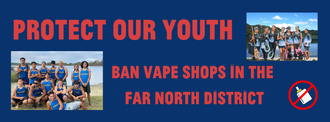.png)

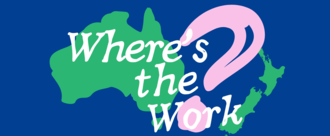
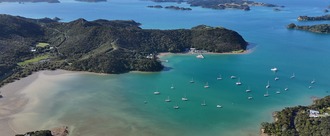
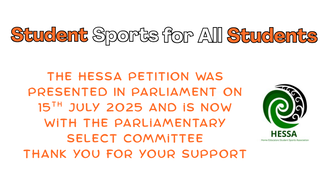%20(1024%20x%20576%20px)%20(2).png)
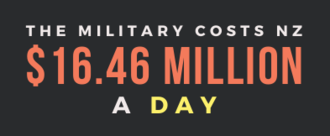.png)

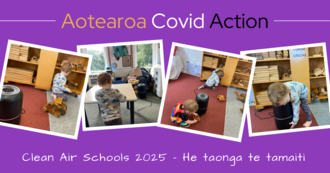.png)
